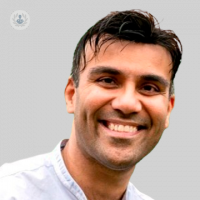What are the main factors that influence healthspan?
Written in association with:As humanity’s understanding of health and aging deepens, the concept of healthspan has gained prominence alongside longevity. While longevity refers to the length of time an individual lives, healthspan focuses on the duration of time a person remains healthy and free from serious disease. The goal is not merely to extend life but to enhance the quality of those additional years.
Here to explain more about this is highly esteemed clinical psychiatrist, Dr Niraj Singh.

What are the main factors that influence lifespan?
In recent decades, medical advancements have significantly increased average lifespans. However, these extra years are often accompanied by chronic illnesses, disabilities, and a decrease in quality of life. This is where the importance of healthspan becomes evident. Healthspan aims to ensure that as people live longer, they also enjoy longer periods of vitality and physical, mental, and emotional well-being.
Several factors influence healthspan, including genetics, lifestyle, and environment. Regular physical activity, a balanced diet rich in nutrients, adequate sleep, and stress management are pivotal. Additionally, avoiding harmful habits such as smoking and excessive alcohol consumption plays a crucial role. Advances in medical research, including the development of personalised medicine, stem cell therapy, and gene editing, also show promise in extending healthspan.
Scientific research has uncovered various biological markers and mechanisms associated with aging and disease. For instance, the role of telomeres, the protective caps on the ends of chromosomes, has been linked to cellular aging. Studies suggest that lifestyle changes can positively impact telomere length, thereby potentially extending healthspan.
Moreover, social factors such as maintaining strong social connections and having a sense of purpose have been shown to contribute significantly to a longer and healthier life. Communities and support systems can provide emotional sustenance and practical assistance, which are vital for mental health and overall well-being.


